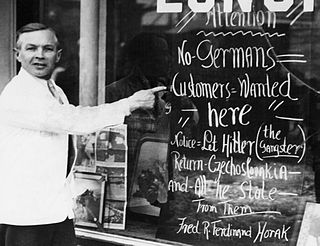A Look Into Social Issues
Social Issues as seen in The Amazing Adventures of Kavalier and Clay pg. 1-225
Economic injustice
Throughout the first third of this novel, Joe and Sam have made incredible strides in their comic book endeavor, achieving great prominence in the industry. However, despite the fact that Joe and Sam have spearheaded and facilitated the growth of Empire Comics, with little help from their bosses Sheldon Anapol and Jack Ashkenazy, an initial contract signed by Joe and Sam has given Anapol and Ashkenazy rights to their characters and authority over their work, leaving them an unfair allotment of the company's earnings. While Joe and Sam have made more money than they likely ever thought they would,s and are financially well-off, they have expressed frustration as they watch Anapol and Ashkenazy live lives of luxury, especially given the global conflict occurring in Europe. For example, Joe was enraged at the "impotence of the money" assumed by his bosses, as it only served to "elaborate the wardrobe and fatten the financial portfolios" (177) when it could be spent towards much more significant means. The issue of economic injustice persists in the present day, as the wealth gap between the rich and the poor continues to grow by the year. Additionally, as the global commercial market has become dominated by a handful of incredibly large corporations, the distribution of wealth has come into question, as many fear the workers fueling these companies are not receiving substantial compensation.
Cultural conflict
Cultural conflict, specifically between Jews and Germans, has been a consistent theme seen throughout Kavalier and Clay. Basically ever time Joe; a Jew from Prague, where his family still resides under the control of the Nazis; encounters a German, he assumes their association with the Nazi regime, or at least their agreement with its policies and beliefs, and initiates a confrontation. Some of these confrontations, such as the one at the Brooklyn Dodgers football game, resulted in a physical brawl where the German in question "connected his fist to the side of Joe's skull" (196). Joe again took his anti-German anger out on Carl Ebling, the leader of the Aryan-American League, rummaging through his office and ultimately getting in a physical altercation. While Joe's anti-German feelings are thoroughly justified given the assault the Nazis were carrying out on his friends and family back home, he sees all Germans as the enemy, as he wishes desperately to find some way to contribute to the war effort, even if that means attacking men that have personally done him no harm.
Immigration/Refuge
Another social issue that appears in The Amazing Adventures of Kavalier and Clay is immigration. While Joe has found his way to America with the help of his family and Professor Kornblum, not a day goes by where he feels guilty that he was gifted the opportunity to go to America, while his family is imprisoned in war-torn, Nazi-controlled Europe. Ever since Joe acquired a decent sum of money, he has relentless tried to acquire visas for his family members to make the trip to America, but has failed repeatedly due to the impossibly difficult immigration system. According to Joe, "obtaining a United States visa, never an easy thing, had become nearly impossible" (178). Joe has done what he never thought possible, set aside enough money to free his family from the shackles of the Nazis, but the American bureaucracy has kept him from doing so. Joe, someone always seeking purpose in his work, thus turns his intentions from acquiring enough money to free his family to thrashing the Nazis by pure literary force, having his heroes defeat them brutally in each page of his comic books. The issue of immigration has been a constant debate in American society, especially during times of global crisis. Do we make our borders more permeable, supplying aid and refuge to those in need while running the risk of a national security crisis, or do we value our national security and limit immigration while denying asylum to many in desperate need? Obviously, during WWII, national security naturally came first, but many were left stranded nevertheless.



Comments
Post a Comment